Have you ever heard of an experimental mindset? It’s a powerful tool for personal growth that involves approaching life as a series of experiments, rather than a series of fixed outcomes. Imagine being your own guinea pig! You get to try out all those crazy “life hacks” you’ve read about on the internet and see if they actually work for you.
In this blog post, I’ll explore what an experimental mindset is, why it’s important, and how you can use self-experimentation to cultivate this mindset and achieve epic personal growth. Let’s dive into the world of self-experimentation together!
What is an experimental mindset?
An experimental mindset is a way of thinking that emphasizes curiosity, creativity, and a willingness to take risks. Rather than seeing failure as a negative outcome, an experimental mindset sees it as a learning opportunity. This mindset is important for personal growth because it allows us to approach challenges and opportunities with a sense of openness and possibility. By viewing our lives as a series of experiments, we can free ourselves from the fear of failure and embrace the excitement of exploration.
The benefits of an experimental mindset are numerous. For one thing, it allows us to be more creative and innovative in our thinking. When we approach problems with a sense of curiosity and openness, we’re more likely to find unique solutions that we wouldn’t have thought of otherwise. Additionally, an experimental mindset can help us build resilience in the face of setbacks. By viewing failure as a natural part of the learning process, we can bounce back from challenges more quickly and effectively.
What are self experiments?
One powerful tool for cultivating an experimental mindset is self-experimentation. This involves intentionally trying new things and observing the results, with the goal of learning more about ourselves and the world around us. You are the subject for the experiments and the goal is to identify whether you want to introduce a new behaviour into life on a long term basis. And you can’t go wrong because the outcome is either great and you continue, or it wasn’t so you either adapt and try again or stop. This is a real opportunity to be curious as there is no failure.
Let’s be honest, it is about introducing new habits on the sly, because it is only for a few weeks while you test it. You keep going until you have an answer of whether it is something you want to continue with, and by then you are already part way to making it a habit and have the evidence that you like the output you get. One of the main points about developing a curious mindset is to move away from thinking it “won’t or doesn’t work” to taking action to find out.
Self experiments I’ve tried
- not eating biscuits or chocolate between meals
- get up as soon as I wake up
- going for a walk every morning

Using Journal Prompts to identify and review self experiments
What are journal prompts?
Journal prompts are questions or statements that help writers by giving them inspiration or a focus. They encourage you to think about a situation or issue from a different perspective, which is why they are beneficial for personal development purposes.
Why and when to use journal prompts?
The main reasons to use journal prompts are when you don’t know what to write, you want to challenge yourself with some different topics or when you want more structure or guidance.
Journal prompts to identify and review your self-experiements
After reading The Year of Less by Cait Flanders I realised what an impact her shopping ban had on her life and not just on her spending. It reaffirmed what I knew that when we change our behaviour, we’ll see other things change. I wasn’t ready to do a year long ban, but I decided I could do some experiments. And of course I tracked my decision-making and reviews in my journal.
Identify the experiment you want to do
The first thing to decide is what experiment are you going to do. There are many things you could do, but which will you start with? In my journal I wrote a list of all the things I’d like to change and then picked one that I wanted to work on first. I then wrote why I wanted to change it to make sure it was truly something I wanted to do and to motivate me. This was followed by two idea lists of new possible actions or habits, one for small changes and one for big changes. Having reviewed the options I chose what I was committing to try.
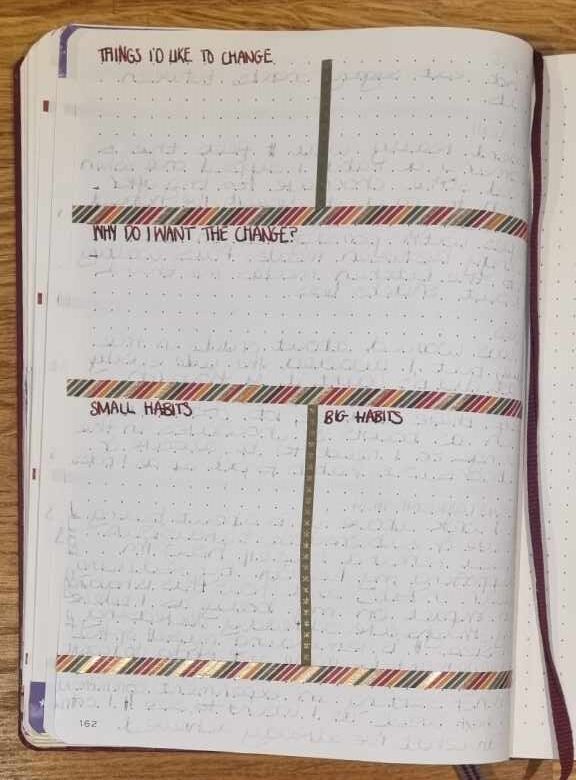
In this example I’ve used washi tape to separate the sections, but you could also draw it with pen, or simply write each prompt after each other. The prompts are:
- Things I’d like to change
- Why do I want to change that?
- Small habits
- Big habits
- Commitment
Review how your experimentation went
I chose to do a weekly review. This was mainly to remind me of the experiment but also to keep me motivated. I wrote about how the past week had gone and any barriers I’d faced which hampered the experiment. I discussed how I could overcome the barriers and revised the commitment based on my feedback.
How you evaluate your experiment is up to you, what feedback do you want to give yourself, do you want to have evaluation criteria or just base it on how you feel? Once you’ve done the evaluation, think about your commitment and your original why you want to make the change. Be iterative if necessary, there are no limitations here, the goal is to find the best way for you to make that change.
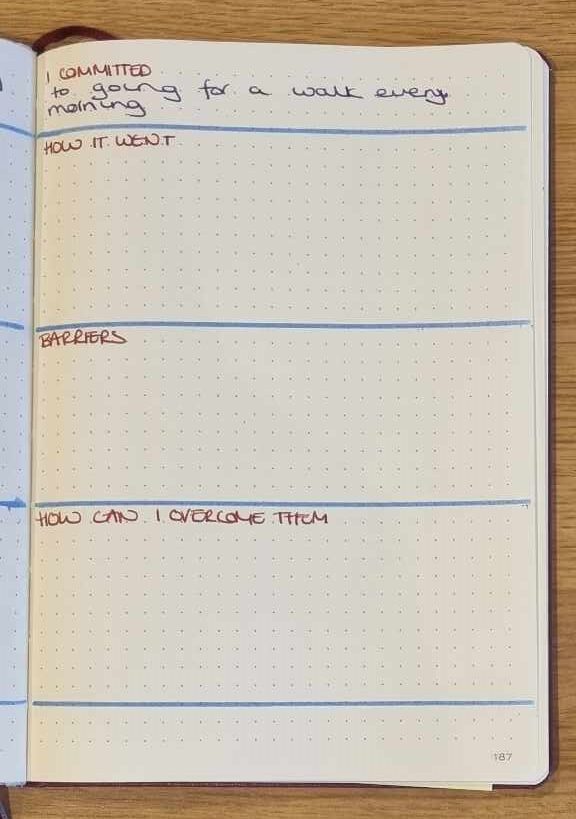
The prompts are:
- I committed
- How it went
- Barriers
- How can I overcome them
- Revised commitment
What next?
This is a great article if you want to read more about trying different things about trying something different. or perhaps getting more scientific rigour this is a good article. And if you want to read more about growth mindset you could read the book Mindset by Carol Dweck*.
Conclusion
An experimental mindset is key to epic personal growth, and self-experimentation is a powerful tool for cultivating this mindset. By approaching life as a series of experiments, we can free ourselves from the fear of failure and embrace the excitement of exploration. Journaling about your self-experiments will keep you motivated and accountable as you track your progress and make adjustments when needed. Never stop trying new things!
*Disclosure – this post includes affiliate links which means if you buy something after using it I will earn some money from the seller for suggesting you visit them. However, it will not cost you anything extra.
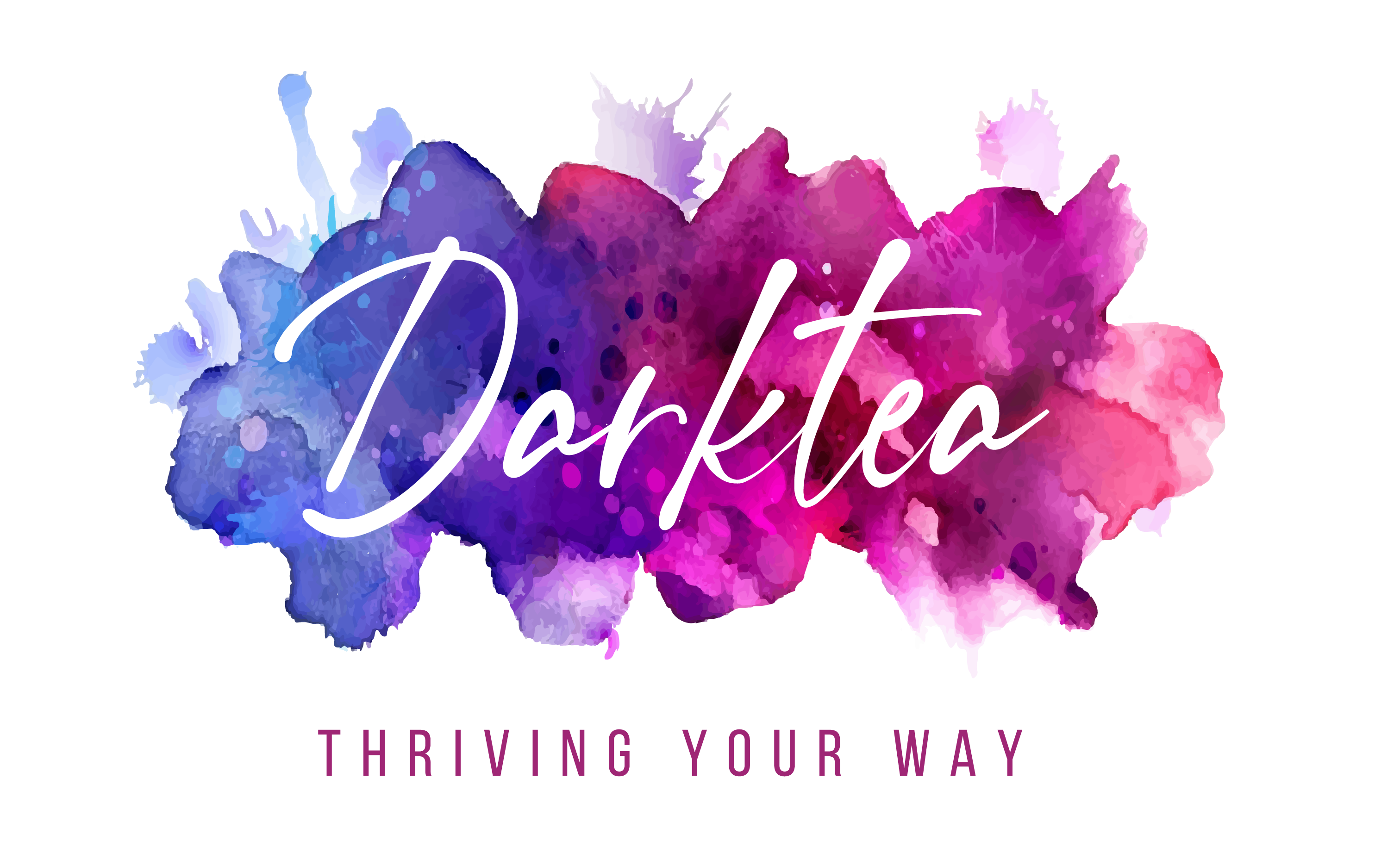

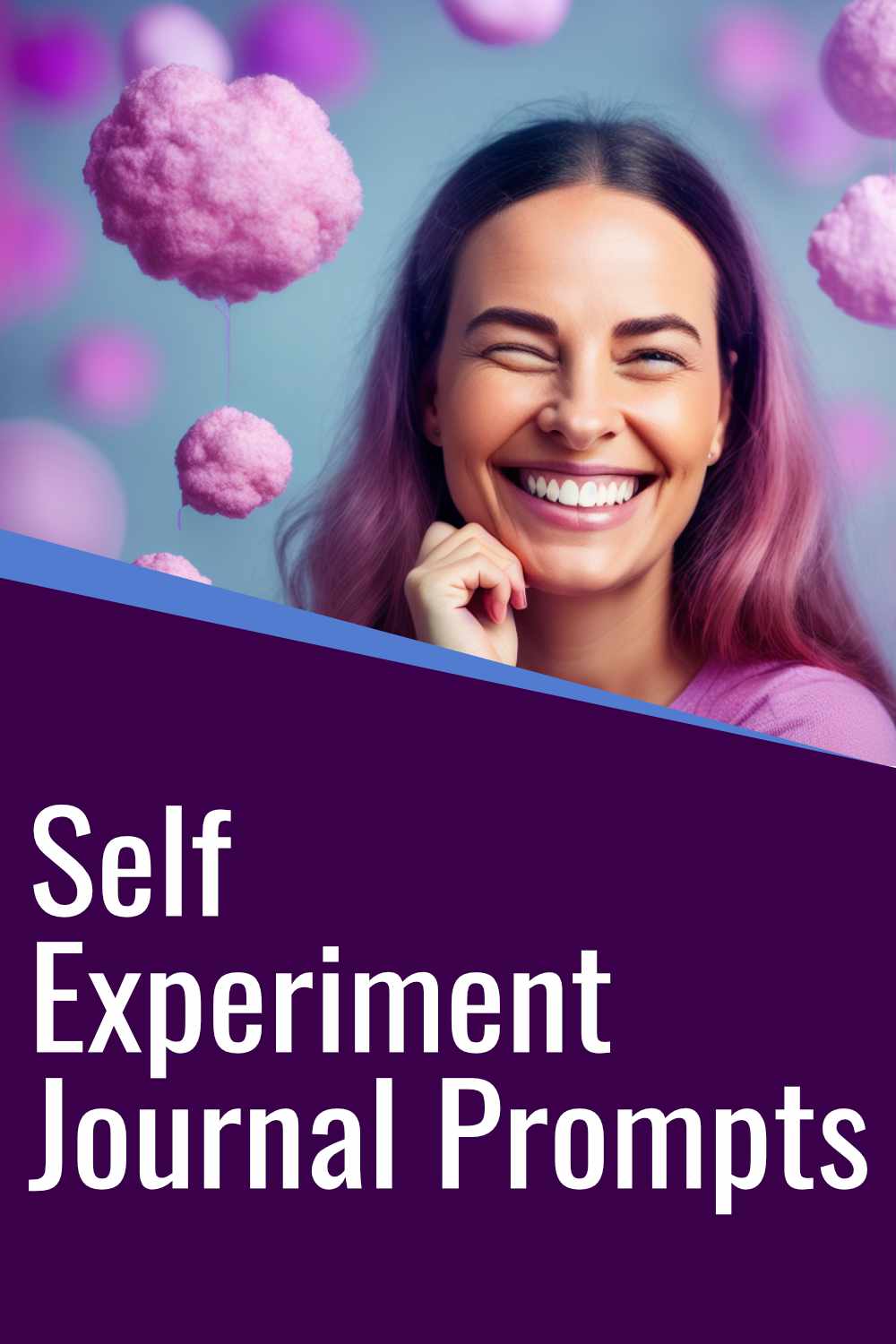
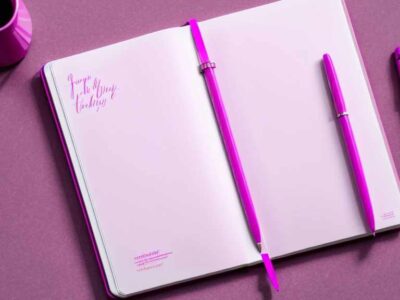




 Burnout by Emily Nagoski and Amelia Nagoski book review
Burnout by Emily Nagoski and Amelia Nagoski book review